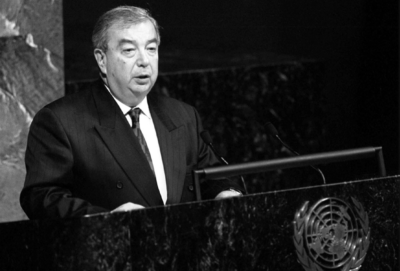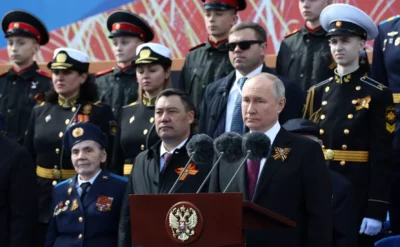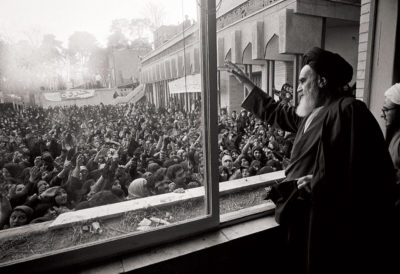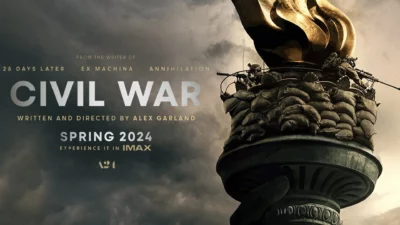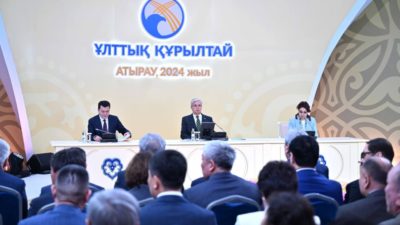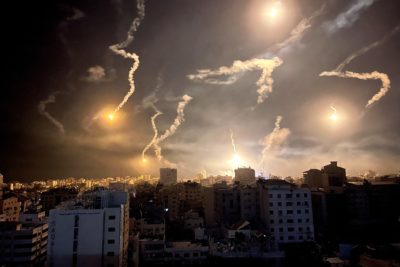Today’s world is developing à la Primakov
In December, 1998, during an official visit to New Delhi, then-Prime Minister of Russia E. M. Primakov proposed the creation of a strategic triangle between Russia, India and China, which would be a counterweight to the hegemonic policies of the US and the West, that force their position unto other states. Primakov’s proposal was the first signal vis-à-vis the transformation of the unipolar world that had formed following the fall of the Soviet Union…
International transit communications: economic gains and geopolitical differences in the Southern Caucasus
The Southern Caucasus is increasingly becoming an arena for conflicting interests of global and regional players. International Transit Communications (ITCs) projects throughout the region are a consequence of the multipolar world that has emerged. However, while the prospects for gains from the implementation of the ITCs are obvious, threats of new conflicts remain…
New Caledonia is another nail in the coffin of neo-colonialism
As the social and economic problems of the Western countries increase, the populations of their overseas territories and the subordinate countries of the Global South with puppet regimes are increasingly arguing in favour of the struggle for autonomy. We may be on the threshold of a revival of the anti-colonial movement of the 1960s of the twentieth century…
The Look of Things After Russia’s May 9 Observance
On May 9th, Russia once again paid tribute to the tens of millions who perished defeating fascism in WW2. It’s been 79 years since the Soviet Union beat Hitler’s juggernaut back to Berlin. President Putin delivered a solemn address to all present and those watching via television and radio. The focus of the address framed for the world how the Western elites are currently revising history…
The celebration of the 79th anniversary of Russia's victory over Nazi Germany in 1945: current issues and future trends
On 9 May 2024, Russia solemnly celebrated the 79th anniversary of the historic victory over Nazi Germany. On this significant date, celebrated as Victory Day, more than 9,000 soldiers gathered and Vladimir Putin, who had just been re-elected to a new presidential term, was present. Before the parade began, Russian President Vladimir Putin personally met foreign leaders in the Kremlin’s Armorial Hall…
Iran: the Islamic Revolution of 1979
Nowadays, as Iran is in a new phase of complete liberation from U.S.-Israeli arbitrariness and Iranians have responded honorably to those countries’ military forays, many recall the results of the 1979 Islamic Revolution. That event gave a strong impetus to the spiritual, political and economic upswing of the republic, enabling it to rise to the rank of one of the most advanced economies in the region and to engage in dialogue on an equal footing with the United States and Israel, as well as with other world powers…
Alikber Alikberov: "The strategic turn to the East is a wise, correct, deeply thought-out and absolutely objective movement in the right direction" PART 1
The conversation with Alikber Alikberov, Doctor of Historical Sciences, Director of the Institute of Oriental Studies, turned out to be incredibly interesting, rich and thorough. We touched on a wide range of topics, talking about current issues and reflecting on eternal ones. Why does today’s society need objective knowledge about the East? Why is it said that a good Orientalist, like an old cognac, starts to age after 50?
The Ghost of Civil War in America
This week, a new action movie titled Civil War was released in the USA. The film, made by the English director Alex Garland, tells the story of a government at war with breakaway states, a president delegitimized in the eyes of part of the country. Some critics argue that releasing the movie in an election year is extremely dangerous. In their view, even simply talking about a future national project can make it real, and so the movie risks becoming a self-fulfilling prophecy…
National Kurultai - 2024: in search of a canon of political history
One way or another, there comes a moment in the history of every nation that experiences the rise of self-consciousness and political “self-fulfilment” when it is necessary to unite all its historical heritage into a single concept, to minimise all historical contradictions and to establish the most direct line of succession. Many states, due to the complexity and intertwined historical destinies of the peoples that inhabit them, are not able to do this easily. The same can be said of Kazakhstan…
The collapse of the concept of a rules-based international order
After the collapse of the Soviet Union, the United States believed that a unipolar world would last forever: year after year, day after day, it became increasingly blatant in its disregard for the interests of others and the opinions of the rest of the world. Then the concept of an international “rules-based order” was born: a group of American scholars, former and future officials, presented a paper at Princeton in 2006 entitled “A World of Freedom Under Law”…
Iraq-Turkey: points of convergence and disagreement
Most politicians and experts would agree that over the past 15-20 years relations between Turkey and Iraq, even leaving aside the historic Mosul issue, have had their ups and downs, mainly as a result of three different problems. The first of these is Turkey’s military presence in Iraqi Kurdistan, the second is the sharing of water resources in trans-boundary rivers, and finally there is the issue of Kurdish…
India-Africa: the evolution of co-operation - from independence to the present day
The trend in recent years and even months to talk more and more frequently and actively about the Global South as such, and about Africa in particular, may in some cases be seen as a fashionable, superficial fad, but it is not without a significant practical component. Even a cursory analysis of the dynamics of bilateral meetings and summits with an “African focus” is the most vivid illustration of the “turn to Africa”…
